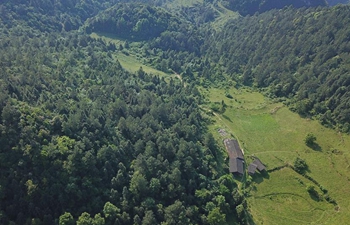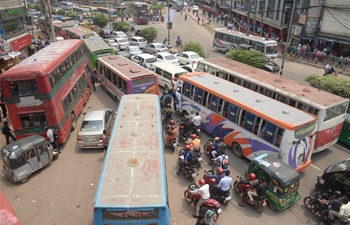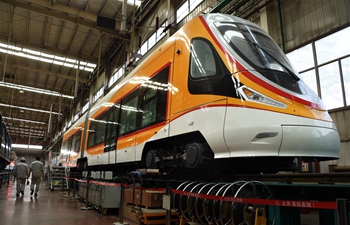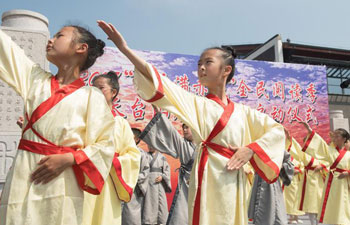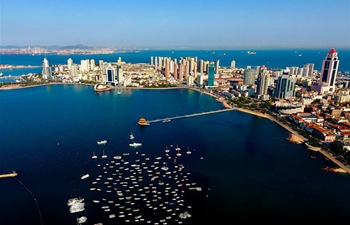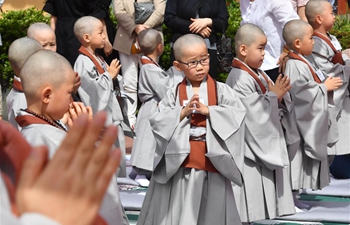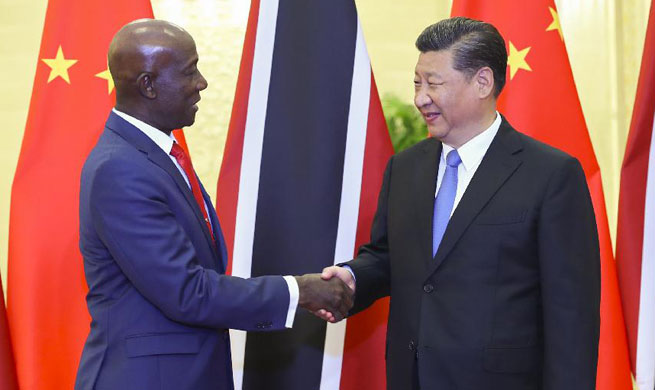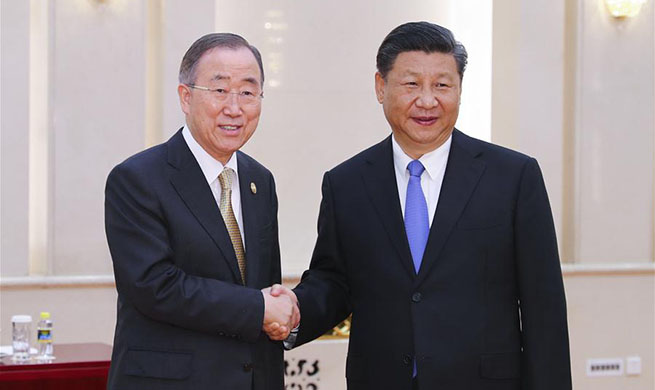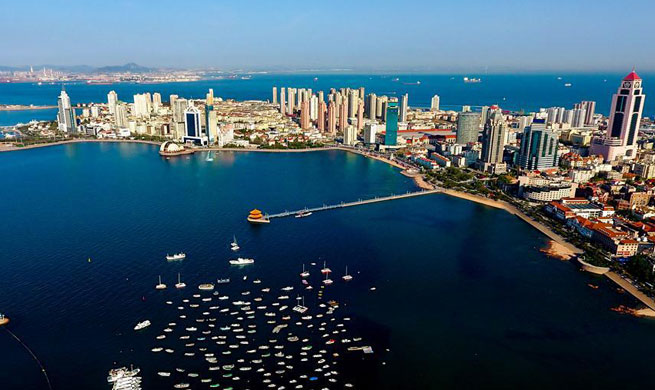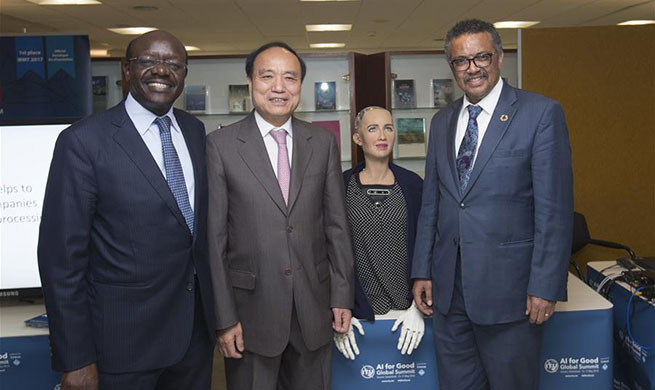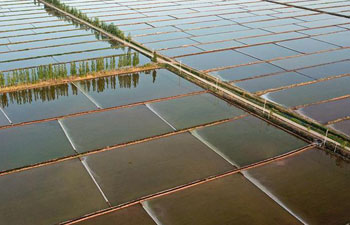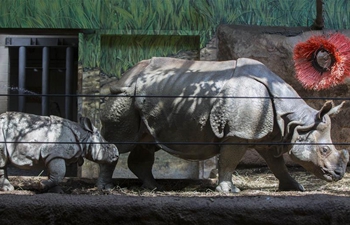ANKARA, May 15 (Xinhua) -- Turkish President Recep Tayyip Erdogan vowed to take more effective control on economy, especially monetary policy, if he wins election next month.
Speaking during an official visit to London, the Turkish head of state repeated that he would lower interest rates after the crucial June 24 legislative and presidential elections, which will shift Turkey from decades-long parliamentary tradition to a presidential system.
"They (the people) will hold the president accountable when they fall into difficulties because of monetary policies," said Erdogan in an interview with Bloomberg television.
Analysts are warning that the Turkish economy is overheating despite a spectacular growth rate of 7.4 percent in 2017 but amid a double-digit inflation and unemployment combined with a continuing depreciation of the Turkish lira.
The Turkish currency, which has lost more than 13 percent of its value since the start of the year, plunged on Tuesday to its lowest ever point against the U.S. dollar.
Erdogan admitted during the interview that investors may be "uncomfortable" because of his future great role in policy making, but said that it was a must.
The Turkish strongman has always been in favor of low interests rates, arguing that this was the way to curb inflation.
Last week he said in Ankara that high interest rates are "the mother and father of evil," fueling concern that he would not allow the Central Bank to hike rates.
Turkey has been through difficult times in the past few years: a coup attempt in 2016 and a controversial constitutional referendum in 2017 that concentrated executive powers in the hands of President Erdogan who is ruling Turkey for 16 years.
The war in neighboring Syria has also had a serious impact on Turkish economy. The country's budget deficit has meanwhile suffered the effects of fiscal amnesty and massive payout to old age pensioners ahead of the June elections.
Meanwhile, Turkey's two major public banks have cut mortgage rates this week, heading Erdogan's call for easing housing loans because construction is one of the pillars of the Turkish economic growth since Erdogan came to power in 2003.
Erdogan, who faces five other candidates, currently tops opinion polls for the presidential elections. But he has to reach the 50 percent-plus-one level of support to win the race in the first round of voting and avoid a run-off election two weeks after June 24.
Four opposition parties have formed an alliance to challenge him in the parliamentary vote and if Erdogan's ruling Justice and Development party (AKP) loses its majority in Parliament, it could be a serious hurdle for the head of state.
In 15 years of rule, economy has always been the strongest point of Erdogan who has transformed Turkey with major housing and building projects.




